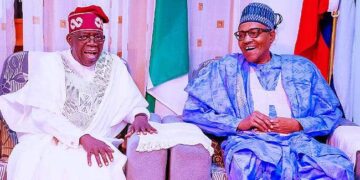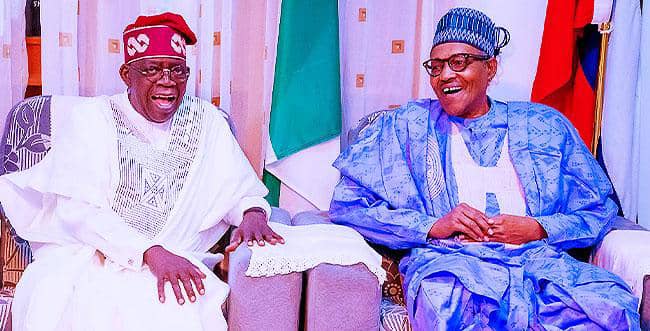By Enyichukwu Enemanna
President Bola Tinubu, his predecessor Muhammadu Buhari, and other past Nigerian leaders are products of an “accidental leadership cycle” a Nigerian Catholic Bishop has stated.
Matthew Kukah, the Catholic Archbishop of Sokoto Diocese posited that these past leaders assumed office without adequate preparation, especially at a time when the demand for effective governance was high.
Kukah while speaking on Sunday in a Keynote address during the commissioning of a new school building reflected on Nigeria’s leadership history and highlighted a recurring pattern of unpreparedness among political office holders.
The cleric said, “If we look at Nigeria’s leadership journey, you will find that almost every leader who came to power did so by accident.”
“President Tinubu, despite claiming to be prepared for the role, is clearly struggling. We are still trying to find our footing. He took over from Buhari, who had already disengaged from governance.
“Buhari succeeded Jonathan, a man who never envisioned himself as president but was thrust into leadership due to circumstances. Jonathan took over from Yar’Adua, who planned to return to teaching after his governorship.
“Yar’Adua succeeded Obasanjo, who was unexpectedly released from prison to become president. Before that, Obasanjo replaced Abacha, who was poised to rule indefinitely until nature intervened. Abacha followed Shonekan, a business executive abruptly drafted to lead the country. The cycle is evident, and the missing link in all of this is knowledge and preparation.”
Kukah argued that while Nigeria has embraced democratic principles like “one man, one vote,” its democratic process has repeatedly failed to deliver competent leadership.
He stressed that modern leadership requires a deep understanding of the evolving environment and challenges.
Analysts have consistently echoed that while Nigeria is blessed with abundant human and material resources, the quality of leadership at both federal and state levels has fallen below expectations.
This is manifested in the policy actions that rarely improve the people’s living standards, instead pauperise and leave them in far worse situations.
Nigerians have lived in a cycle of having fond memory of past leaders as a result of “bone-crushing” policies of those in power.
President Bola Tinubu a former governor of the country’s commercial capital, Lagos has been fiercely criticised for key policy actions that have created poverty among Nigerians since assumption of office.
He removed subsidy on petrol immediately he assumed office as Buhari’s successor, a development that created record high inflation.
He also announced the unification of forex window which.
Opposition and civil society organizations have accused him of being insensitive to the plight of Nigerians, arising from his economic policies.



































